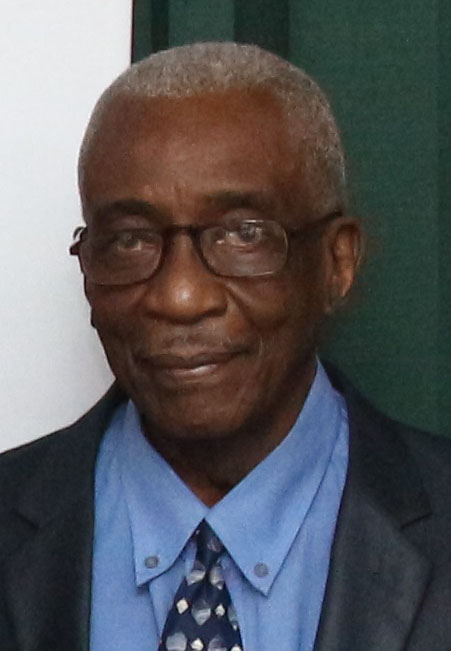Retired judge James Patterson has vacated the office of Chairman of the Guyana Elections Commission (GECOM) following the ruling by the Caribbean Court of Justice (CCJ) that his appointment was unconstitutional.
In a press statement issued yesterday, the Ministry of the Presidency confirmed that President David Granger had met with Patterson, who had resigned on Monday, June 24th.
“President Granger thanked Justice Patterson for his service over the past 20 months,” the statement added.
It further noted that Patterson’s decision to demit office is in keeping with the CCJ ruling that his appointment was “flawed” and thereby unconstitutional and reiterated that the Government of Guyana’s acceptance of the CCJ ruling in the case of Zulfikar Mustafa and the Attorney General of Guyana and the Chairman of GECOM.
Justice Patterson was controversially appointed as GECOM Chair on October 19th, 2017, following President Granger’s rejection of three lists of nominees submitted by Leader of the Opposition Bharrat Jagdeo.
Over a period of 11 months, Jagdeo, in keeping with the provisions of Article 161(2) of the Constitution, submitted the names of a total of 18 persons whom he believed could hold the post of Chairman.
The first list, which was submitted on December 21st, 2016, consisted of Chartered Accountant and lawyer Christopher Ram; business executive Ramesh Dookhoo; author, Indian rights activist and columnist Ryhaan Shah; historian Professor James Rose; governance and peace practitioner Lawrence Lachmansingh and former Chief-of-Staff of the Guyana Defence Force and mining executive Norman McLean. These names were rejected.
On May 2, Jagdeo submitted a list which comprised retired judges BS Roy and William Ramlal, attorneys Oneidge Walrond-Allicock, Nadia Sagar and Kashir Khan and businessman Gerry Gouveia, in keeping with certain criteria outlined by Granger.
Several weeks later, Granger announced that the rejection of the six new names and later invited Jagdeo to a meeting at State House to further discuss the matter. Following that meeting, it was agreed that a third list of nominees would be submitted and that a high-level team would be established to explore all modalities for a resolution should that list be rejected.
The last list, submitted on August 25th, 2017, included the names of Joe Singh, a retired Guyana Defence Force Major General, who previously served as GECOM Chairman; former long-serving magistrate Krisndat Persaud; attorneys Teni Housty and Sanjeev Datadin; pilot and biodiversity advocate Annette Arjoon-Martins; and Adventist pastor and agriculturalist Onesi La Fleur.
Granger rejected the list and then unilaterally appointed the then 84-year-old Patterson three hours later.
In response, opposition People’s Progressive Party/Civic (PPP/C) Member of Parliament Zulfikar Mustapha initiated a legal challenge to the appointment, while contending, among other things, that the president had no power to make a unilateral appointment once a list of six names had been submitted to him.
Guyana’s High Court ruled that the President had the power, under Article 161(2) of the Constitution, to reject the list submitted by the Opposition Leader if it is unacceptable to him and to resort to the proviso of that article and choose a person as Chairman of GECOM who is, was, or is qualified to be appointed as a judge in Guyana or the Commonwealth.
This decision was then upheld by the Guyana Court of Appeal and the case then moved to the CCJ.
On June 18th, the CCJ in turn said Granger had no authority to introduce new eligibility requirements and should have given reasons for rejecting the 18 candidates submitted to him by Jagdeo.
“…In view of the unfortunate process that was followed, the imposition on the Leader of the Opposition of criteria that were not sanctioned by the Constitution, and the absence of cogent reasons for deeming unacceptable the candidates and lists provided, the Court concluded that the process that was followed in the appointment of Justice Patterson was flawed and in breach of Article 161(2),” President of the Caribbean Court of Justice, Justice Adrian Saunders said while reading a summary of the court’s decision last week.





